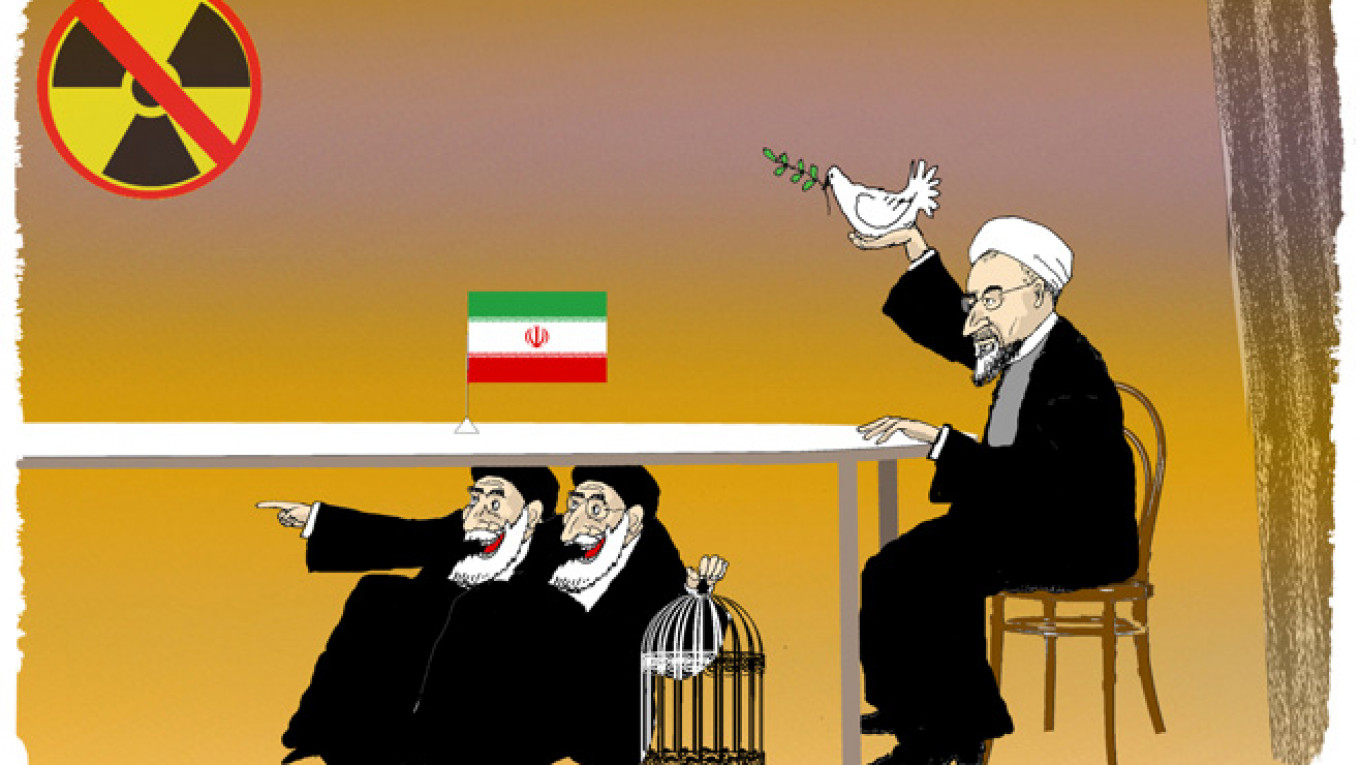The negotiations between Iran and the six major powers in Switzerland led to a remarkable diplomatic breakthrough. Official Tehran has accepted strict restrictive measures for its nuclear program.
Specifically, Iran has agreed to reduce the number of its centrifuges capable of enriching uranium by two-thirds, down to 6,104 units. It has agreed to use only first-generation centrifuges. All additional centrifuges and those that are more advanced — along with all other uranium enrichment infrastructure — will be placed in a storage facility controlled by the International Atomic Energy Agency (IAEA) and will only be used to replace operating centrifuges and equipment.
Iran has also promised not to enrich uranium beyond the level of 3.67 percent for at least 15 years, and has agreed to reduce its current stockpile of low-enriched uranium (LEU) from 10,000 kilograms to 300 kilograms of uranium enriched no higher than 3.67 percent for the next 15 years.
Tehran also agreed not to build new uranium enrichment facilities for the next 15 years. Iran agreed to rebuild its structure in Fordow so that it can only be used for peaceful purposes, converting it into a nuclear, physics and technology research and development center, and to "not conduct research and development associated with uranium enrichment at Fordow for 15 years."
Iran will also consolidate all of its uranium enrichment in its factory in Natanz and conduct those operations for exclusively peaceful purposes. And finally, IAEA inspectors will watch day and night to ensure compliance with all these terms.
In exchange, as Tehran fulfills these conditions, the United Nations and individual states will lift the sanctions against Iran that they have imposed. Iran will be able to sell its oil and gas and it will be reconnected to the SWIFT banking system.
Diplomats very optimistically assert that, now that the sides have reached an agreement in principle, it will take only three months to put all of the rather complicated details on paper. However, they pointedly mention, "the devil is in the details."
I suspect that the devil is not in the details, but in the values. That is, will any particular state feel obligated to uphold its end of the agreement, or will it pursue its own "higher purpose" by deliberating deceiving the "infidels."
Washington's fact sheet concerning the agreement with Iran states: "Iran's breakout timeline — the time that it would take for Iran to acquire enough fissile material for one weapon — is currently assessed to be two to three months. That timeline will be extended to at least one year, for a duration of at least 10 years, under this framework."
The agreement also permits Iran to retain its entire infrastructure for the production of weapons-grade fissile material — with the exception of its reactor in Arak. The viability of the agreement ultimately depends on Iran's willingness to observe the conditions it contains. And that is a question of values.
We are asked to believe that the Iranian president — a liberal by that country's standards — has reflected on the situation and now wishes to reach an agreement with the international community.
However, nothing prevents the ayatollahs — the real rulers of the country — from replacing him, and to do so strictly in accordance with their own ideas of right and wrong. Imagine a worst-case scenario in which Iran initially fulfills its commitments but at a later, more dangerous stage in the process, reneges.
For example, once Iran begins complying, the international community will begin lifting sanctions. At that point, it will begin selling gigantic amounts of energy on a scale to rival Russia.
It will build up major financial and economic reserves and use them to purchase equally gigantic weapons systems. Note in this regard that, immediately after diplomats reached the current agreement with Iran, Russian Deputy Foreign Minister Sergei Ryabkov announced, "We believe the arms embargo should be lifted immediately after reaching an agreement. … We will insist on an urgent and priority decision to revoke the arms embargo against Iran."
Ryabkov is referring primarily to Moscow's offer to sell Tehran its S-300 surface-to-air missiles that could help shield Iran from air strikes by nuclear missiles, among others.
At that point, Iran could follow the example that North Korea set in 2003 by announcing its withdrawal from the Treaty on the Non-Proliferation of Nuclear Weapons, expelling all IAEA inspectors, reinstalling all those centrifuges carefully preserved in warehouses and building an atomic bomb within one year. Importantly, the agreement does not prohibit Iran from conducting such research.
And that leads to the million-dollar question: What should the world do if Iran violates its obligations? In previous centuries, the aggrieved parties would wage war against those whom they claimed had violated their obligations.
But now it is impossible to attack a state that can kill millions of people with the push of a button. That is why the international community does not use military force against North Korea, but naggingly tries to persuade Pyongyang to abandon its nuclear weapons.
And therein lies the main risk in the current agreement with Tehran: How can the international community guarantee that the Ayatollah will not use the agreement as a breather before quickly reversing course, building atomic weapons and making Iran immune to future attack or external pressures?
Alexander Golts is deputy editor of the online newspaper Yezhednevny Zhurnal.
A Message from The Moscow Times:
Dear readers,
We are facing unprecedented challenges. Russia's Prosecutor General's Office has designated The Moscow Times as an "undesirable" organization, criminalizing our work and putting our staff at risk of prosecution. This follows our earlier unjust labeling as a "foreign agent."
These actions are direct attempts to silence independent journalism in Russia. The authorities claim our work "discredits the decisions of the Russian leadership." We see things differently: we strive to provide accurate, unbiased reporting on Russia.
We, the journalists of The Moscow Times, refuse to be silenced. But to continue our work, we need your help.
Your support, no matter how small, makes a world of difference. If you can, please support us monthly starting from just $2. It's quick to set up, and every contribution makes a significant impact.
By supporting The Moscow Times, you're defending open, independent journalism in the face of repression. Thank you for standing with us.
Remind me later.







